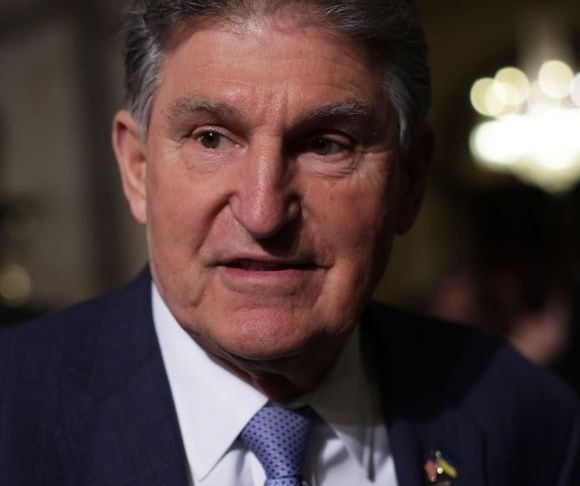Republicans have found an ally across the aisle in their crusade to fight against the widespread ESG (environmental, social, and governance) initiative: Sen. Joe Manchin (D-WV). Over the past year, conservative organizations and GOP officials at both the federal and state levels have been battling against what they call woke capitalism aimed to institute progressive policies by bypassing the voting booth and through the backdoor in the economic landscape. But are these efforts in vain, or will this latest battle prevent ESG from being inserted into the public and private sectors?
Joe Manchin Joins the Fight
 Last year, the White House presented a final rule that would make it easier for employers to incorporate ESG factors when selecting investment funds for their 401(k) plans. This overturned the previous administration that prevented employers from weighing ESG components when choosing these retirement funds. Now that the Inflation Reduction Act is anticipated to bolster so-called sustainable investing trends, many retirement schemes may choose more ESG-related programs.
Last year, the White House presented a final rule that would make it easier for employers to incorporate ESG factors when selecting investment funds for their 401(k) plans. This overturned the previous administration that prevented employers from weighing ESG components when choosing these retirement funds. Now that the Inflation Reduction Act is anticipated to bolster so-called sustainable investing trends, many retirement schemes may choose more ESG-related programs.
Sen. Mike Braun (R-IN) and Rep. Andy Barr (R-KY) introduced a resolution that would reverse the rule that would permit retirement managers to consider ESG standards, effectively “politicizing” Americans’ 401(k) plans and “jeopardizing retirement savings for millions of Americans for a political agenda.”
In recent weeks, more than 100 organizations have supported the resolution. But it also received an endorsement from Sen. Joe Manchin, who called it “irresponsible” for the White House to make retirement savings vulnerable “for purely political purposes.”
“I encourage my colleagues on both sides of the aisle to support this important resolution to ensure Congress is promoting economic security for West Virginians and Americans, not further exacerbating the serious economic challenges they are already facing,” he said in a statement.
Despite earning support from one member on the other side of the political aisle, political observers agree that the legislative pursuit would face an uphill battle in the Democrat-controlled Senate. In the meantime, a group of 25 Republican state attorneys general submitted a lawsuit against the Department of Labor to block the ESG rule. They contend that the adjustment “contravenes ERISA’s [Employee Retirement Income Security Act] clear command that fiduciaries act with the sole motive of promoting the financial interests of plan participants and their beneficiaries.” Until these legal cases proceed, and official rulings are announced, the change will remain intact.
Critics typically cite the lack of financial returns for investors. Research from New York University (NYU), the University of Chicago, and UCLA, shows that funds that receive terrific ESG marks generally underperform funds with the lowest-rated ESG factors and the broader market.
“Moreover, 85 percent of the country does not even know what ‘ESG’ is, and therefore would not be aware of the financial risks their retirement account managers are subjecting them to when they actively pursue ESG investment decisions,” wrote Advancing American Freedom (AAF), a non-profit conservative advocacy group, in a letter to Congress.
Republicans Place Bullseye on ESG

Ron DeSantis (Photo by James Gilbert/Getty Images)
Republicans nationwide have placed a bullseye on the ESG crusade, banning or restricting the use of taxpayer dollars for ESG purposes. They have also refrained from doing business with fund managers that have embraced the ESG model, which typically involves abandoning fossil fuels.
This past summer, Florida Gov. Ron DeSantis (R) championed a resolution prohibiting state pension funds from thinking about making investment decisions with taxpayer funds based on ESG principles. Many GOP-led states have also adopted similar solutions, including Georgia, Kentucky, Mississippi, North Dakota, and Texas. “Corporations across America continue to inject an ideological agenda through our economy rather than through the ballot box,” DeSantis stated in January.
But is their defiance achieving any victories? Although financial institutions have paid lip service to the wokeologists by selling ESG products, many of these firms are still tied to industries and companies that would violate the principles of this new phenomenon. Moreover, despite billions of dollars poured into impact investing funds, the entire idea behind ESG is being threatened by deceptive practices, such as greenwashing (businesses claiming to be environmentally conscious while not maintaining any sustainable efforts). Be it the hand of lawmakers or market forces, ESG may need an overhaul and rebranding to survive.




